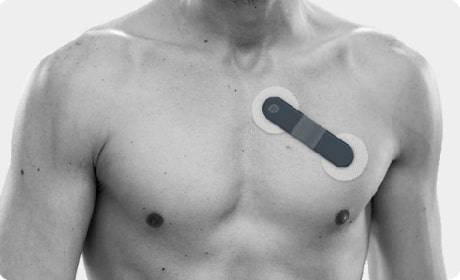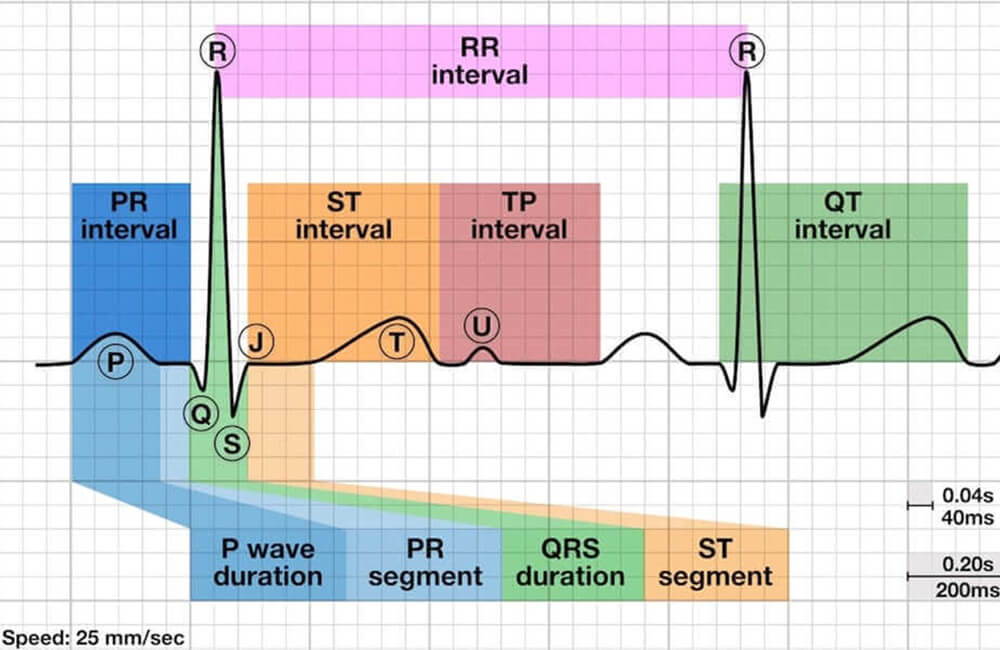Is Ventricular Arrhythmia Serious?
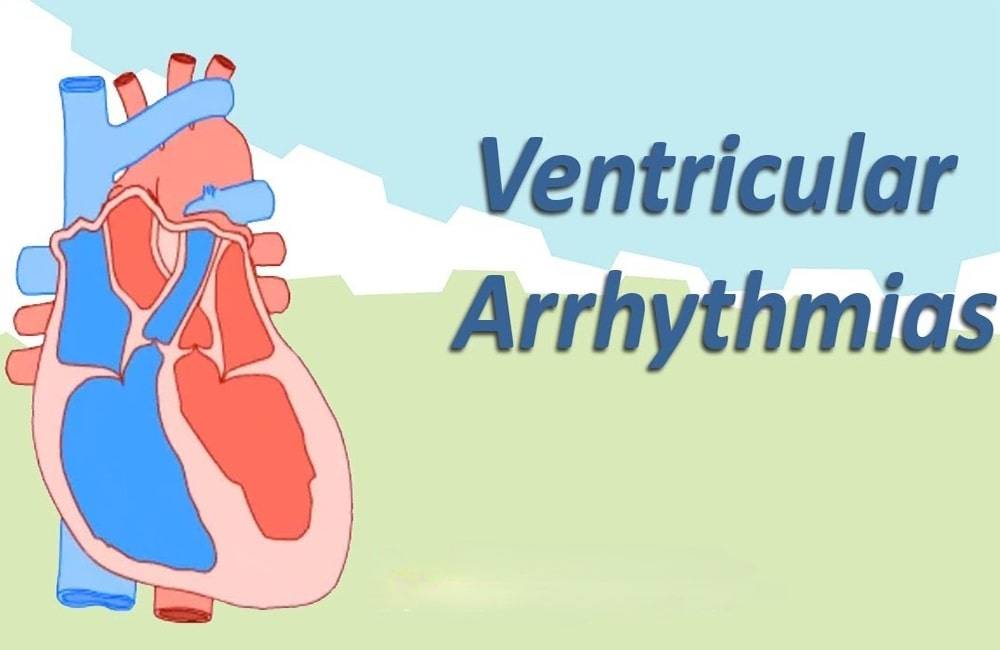
Some people have been told they have ventricular arrhythmia after they have an ECG (electrocardiogram) test in the hospital, so they are scared and asked: is the ventricular arrhythmia serious?
Today, we are going to know something about ventricular arrhythmia.
What Is Ventricular Arrhythmia?
Ventricular arrhythmias refer to abnormal heart rhythms originating from the ventricles (the lower heart chambers), including premature ventricular beats (premature ventricular contractions), ventricular tachycardia, ventricular flutter and ventricular fibrillation.
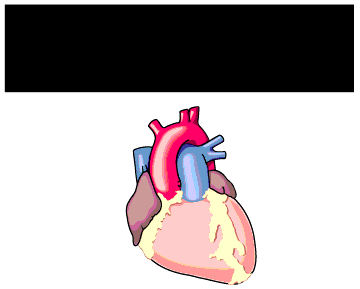
Is Ventricular Arrhythmia Dangerous?
Ventricular arrhythmias are clinically very dangerous when they occur, except for ventricular premature beats (PVB or PVC), other types of arrhythmias such as ventricular tachycardia, ventricular flutter and ventricular fibrillation are very dangerous. When premature ventricular beats occur, if they are asymptomatic, it does not require treatment, because they are generally not fatal. However, if ventricular tachycardia, ventricular flutter and ventricular fibrillation occur, it is very dangerous in clinical and requires emergency treatment and resuscitation often at an early stage.
Premature Ventricular Beats (PVB) / Premature Ventricular Contractions (PVC)
It is the most common clinical arrhythmia that occurs when the ectopic foci of excitation in the ventricular myocardium below the bundle and branches are depolarized prematurely.
It can occur in normal healthy people and patients with various heart diseases and has a wide variability of clinical symptoms and generally good prognosis.
A survey of the general population found that the prevalence of ventricular prematureness detected by general 12 lead ECG was 1%, while that by 24h or 48h ambulatory ECG was as high as 40% to 75%. It can be said that about half of the general population has PVC. The occurrence of ventricular prematureness increases with age and is as high as 69% in people over 75 years of age.
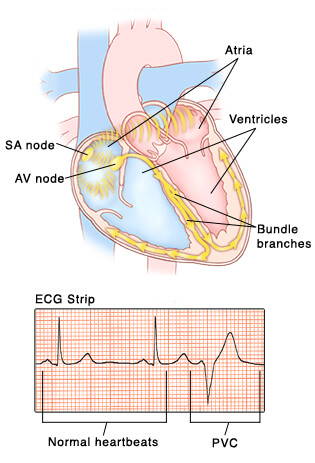
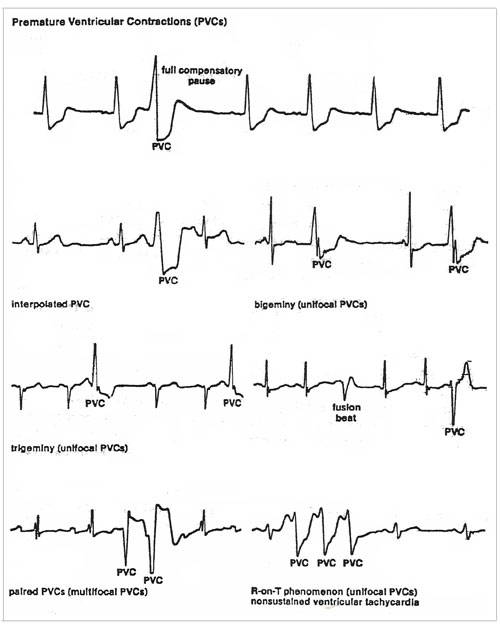
Ventricular Tachycardia (VT)
Unlike other types of tachycardia, doctors are very nervous once they see this type of tachycardia because it can be fatal.
Why is ventricular tachycardia fatal? For one, it is most commonly seen in various organic heart diseases such as myocardial infarction, myocarditis, cardiomyopathy, etc. For two, ventricular tachycardia originates in the ventricles and its sequence of excitation is completely opposite to the normal heartbeat, which can affect the efficiency of the ventricles.
Since ventricular tachycardia can lead directly to death, it is said that ventricular tachycardia also means that one's life has sounded the alarm and he must go to see a doctor as soon as possible.
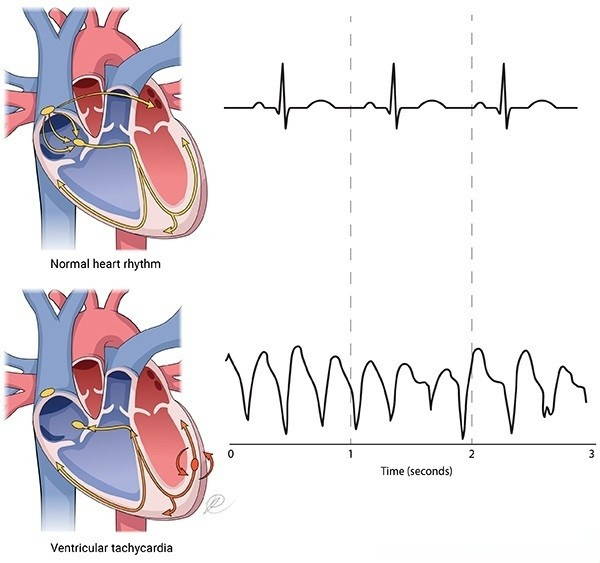
Ventricular flutter and ventricular fibrillation (VF)
Ventricular flutter and ventricular fibrillation are the direct causes of sudden cardiac death.
Ventricular flutter often precedes ventricular fibrillation, eventually leading to cardiac arrest. Once ventricular flutter occurs, the patient may exhibit sudden loss of consciousness, convulsions, cyanosis associated with the respiratory system, which will eventually lead to death. Physical examination may reveal signs such as the disappearance of heart sounds and pulse beats, undetectable blood pressure, and dilated pupils.
Ventricular fibrillation is a lethal arrhythmia in which the ventricles become disordered, resulting in the loss of regular ventricular excitation and diastolic function.
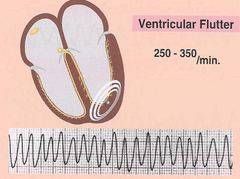
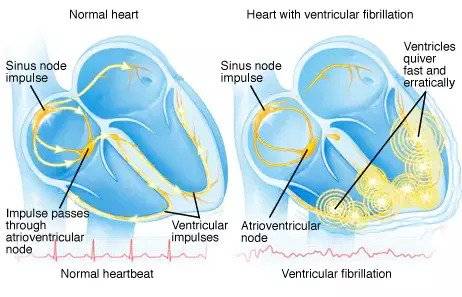
Precautions
Patients with arrhythmia may have palpitations, chest tightness, dizziness and other symptoms.
Ensure adequate rest and sleep.
Diet.
- Give fiber-rich foods to prevent constipation.
- Avoid full meals and intake of stimulating foods such as coffee and strong tea.
Monitor ECG daily to prevent serious heart condition.
This heart health monitor can continuously record the ECG for over 24 hours, more portable and light than Holter monitor. Real-time ECG can be read on the phone APP.
Otherwise, AI ECG report is available from PC software, which means sometimes you don't have to spend more time waiting for the doctor's analysis. As far, the following ECG events can be analyzed by the FDA approved Wellue's AI algorithm:
1.PVC(Premature Ventricular Contraction)
2.Couplet of PVC
3.PVC Bigeminy
4.PVC Trigeminy
5.Ventricular Tachycardia
The AI ECG report cannot replace the doctor's diagnosis, but truly helped dotors and patients save time and make patients learn their heart easier.

